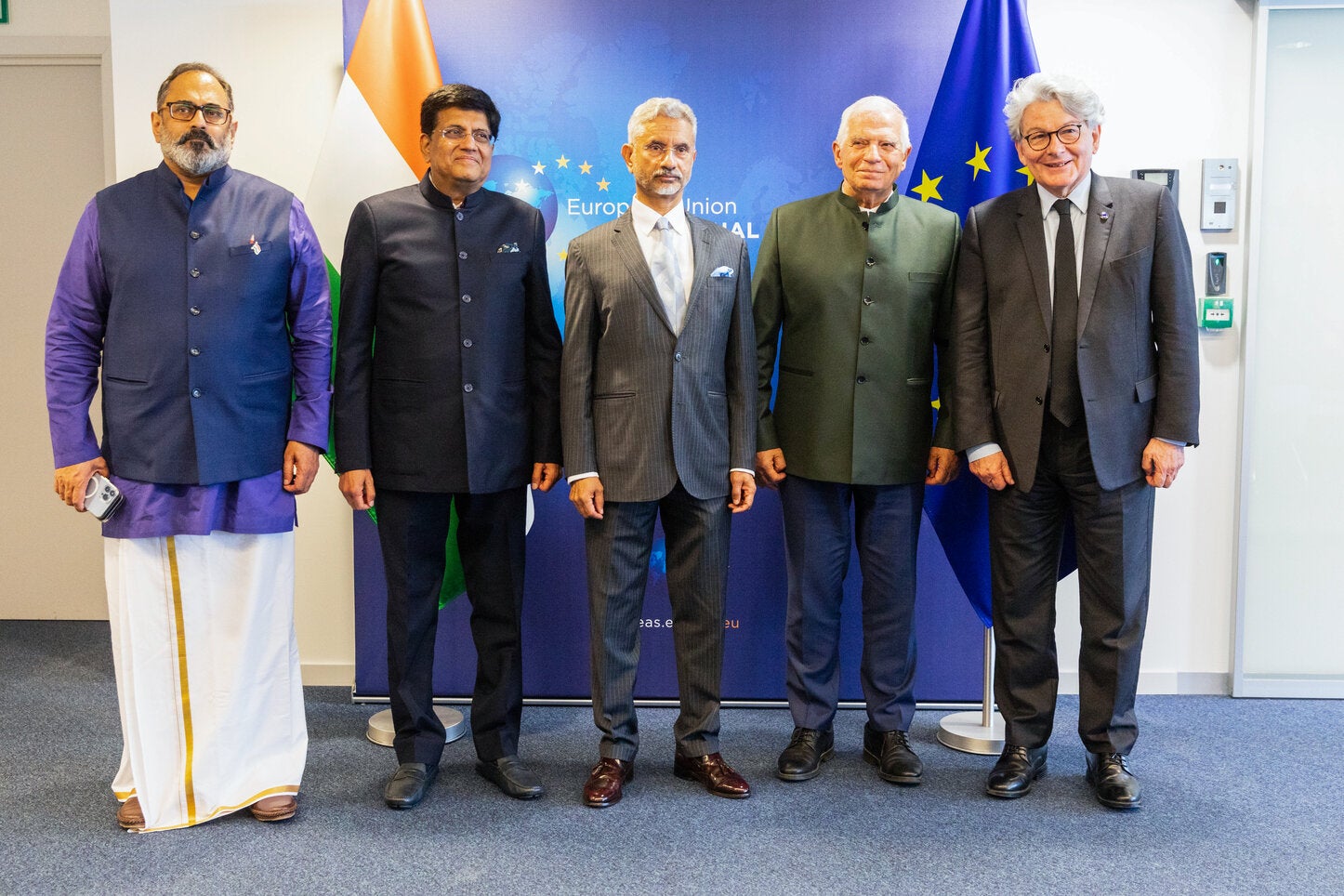
The EU’s chief diplomat Josep Borrell has urged the bloc to crack down on imports of Indian fuel made from refined Russian oil, as western countries once again look to tighten sanctions on Russian energy, the Financial Times reports.
Borrel, who stands as the bloc’s high representative for foreign policy, told the newspaper that Brussels was aware India had begun to buy large quantities of Russian crude oil at discounted prices and worried it was then selling refined products from this crude, particularly diesel and jet fuel, to European countries.

Discover B2B Marketing That Performs
Combine business intelligence and editorial excellence to reach engaged professionals across 36 leading media platforms.
Last month, it was reported that India’s diesel exports to Europe rose 12%-16% in the last fiscal year, reaching 150,000-167,000 barrels per day (bpd). The main European buyers of Indian diesel are France, Turkey, Belgium and the Netherlands. European imports of jet fuel refined in India also saw a huge leap last year, increasing from 40,000-42,000 bpd in 2021-2022 to 70,000-75,000 bpd in fiscal year ending 2023.
“If diesel or gasoline is entering Europe . . . coming from India and being produced with Russian oil, that is certainly a circumvention of sanctions and member states have to take measures,” Borrell said to the Financial Times.
Price caps and outright bans imposed on Russian crude oil and oil products by the EU and G7 member states have resulted in Moscow taking a hit on revenue brought in by energy sales. In February, the country’s tax income from oil and gas sales fell to its lowest level since August 2020. Since the war in Ukraine began, Russia has seen a 46% average decline in its monthly energy sector tax revenue.
In March, Russia’s energy minister Nikolai Shulginov said that all oil exports affected by Western sanctions had been rerouted to “friendly” countries. “We have managed to completely redirect the entire volume of exports affected by the embargo. There was no decrease in sales,” he said.

US Tariffs are shifting - will you react or anticipate?
Don’t let policy changes catch you off guard. Stay proactive with real-time data and expert analysis.
By GlobalDataAt the end of March, imports of Russian crude to India had increased by 2200%, according to Russian Deputy Prime Minister Alexander Novak. Throughout this year, India’s imports of Russian oil have continued to hit record highs every month. Elsewhere, Morocco and Turkey have also been taking advantage of cheap Russian gas and oil. Morocco’s imports of Russian diesel surged from 600,000 bpd in 2021 to more than 2 million in January 2022.
Borrell acknowledges that it is understandable that India wants to take advantage of lowered Russian crude prices, but suggested that he is not comfortable with the amount of refined Russian oil entering Europe.
“That India buys Russian oil, it’s normal. And if, thanks to our limitations on the price of oil, India can buy this oil much cheaper, well the less money Russia gets, the better,” he said. “But if they use that in order to be a centre where Russian oil is being refined and by-products are being sold to us . . . we have to act.”
However, other sanctions set complicated precedents. Despite US sanctions on Venezuelan and Iranian oil, for example, it is generally accepted that once the crude has been refined elsewhere, it is no longer considered as being from the country that produced it. Further difficulties arise when trying to identify the origin of refined oil; India imports crude from several countries and identifying specific origins could prove tricky.
Borrell’s comments came ahead of a meeting on Tuesday with India’s foreign minister S Jaishankar. Is it also likely that India’s Prime Minister Narendra Modi will come under pressure from G7 leaders on Russian oil at the summit scheduled for the end of this week in Japan.
On Monday it was reported that at the same summit, EU and G7 leaders will move to ban Russian gas imports on routes where Russia has previously cut supply in retaliation for the sanctions placed on its oil. That decision would forcefully prevent the resumption of Russian pipeline gas exports to western Europe, through terminals in Poland and Germany.





